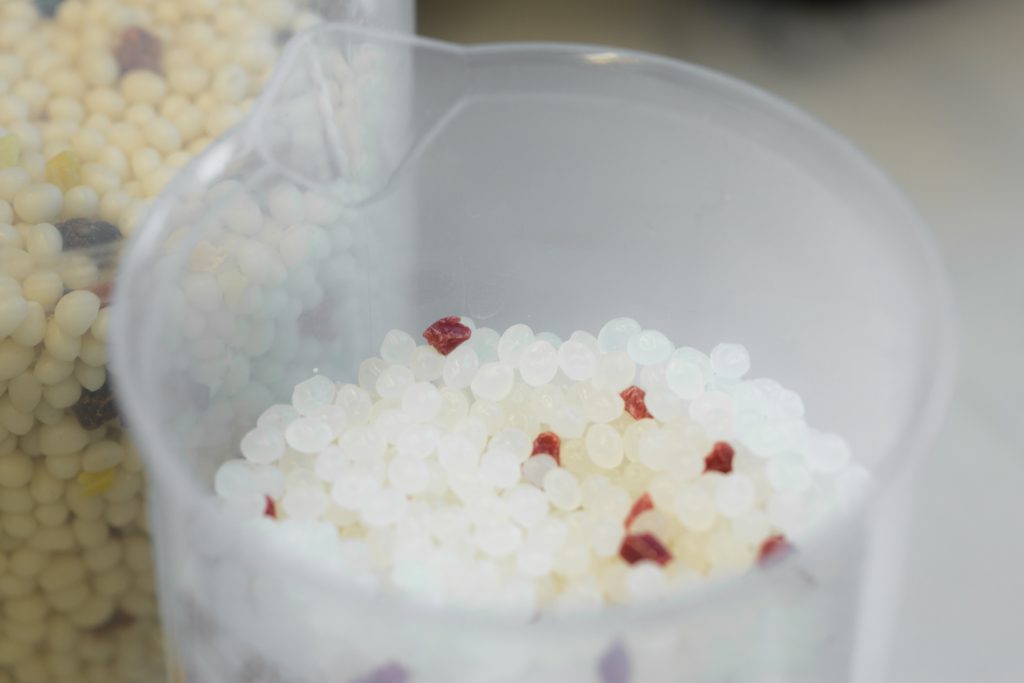Biopolymers or bioplastics are made from natural raw materials, such as corn or sugar cane. We are also able to make biopolymers from residual flows from the potato processing industry or verge grass. Because the raw material is grown on the basis of CO2 from the air, it is not bad for the climate if the plastic disappears in the waste incinerator after use.
Not all bioplastics are biodegradable. A number of types of bioplastics replace existing plastics, such as PET, with similar characteristics. For many applications, such as the well-known cola bottles made of bio-PET or PEF, biodegradability is undesirable. As stated, their advantage lies in the lack of a climate effect in waste incineration.
However, many types of bioplastics, such as PLA, are distinguished by fully biodegradability. This makes them not only circular but can also offer a solution for litter. In many applications, biodegradability is therefore not a problem or a major advantage.




